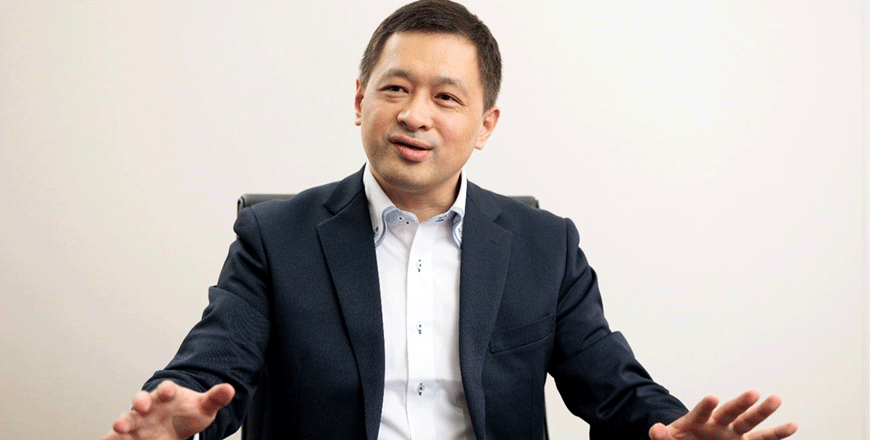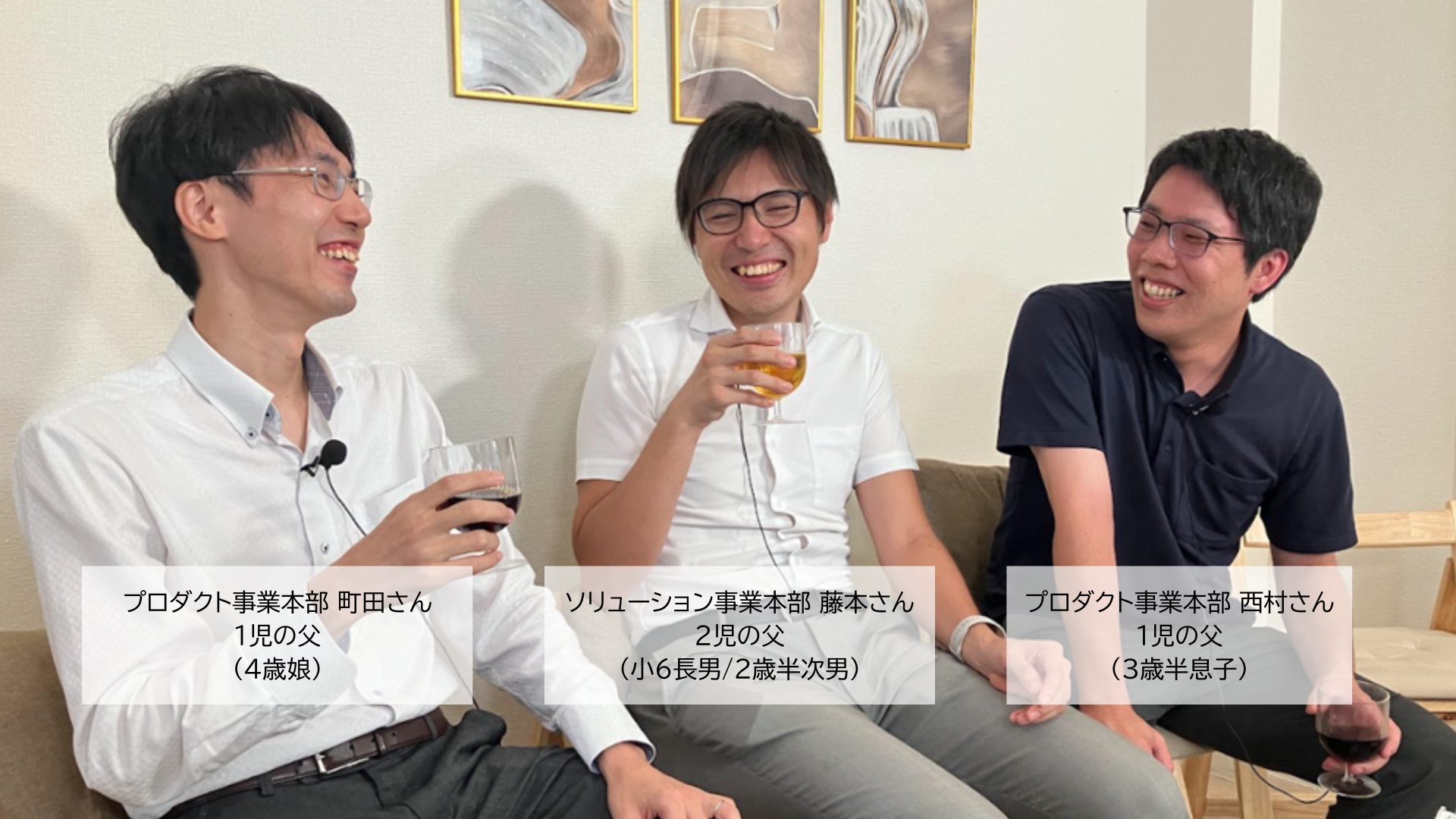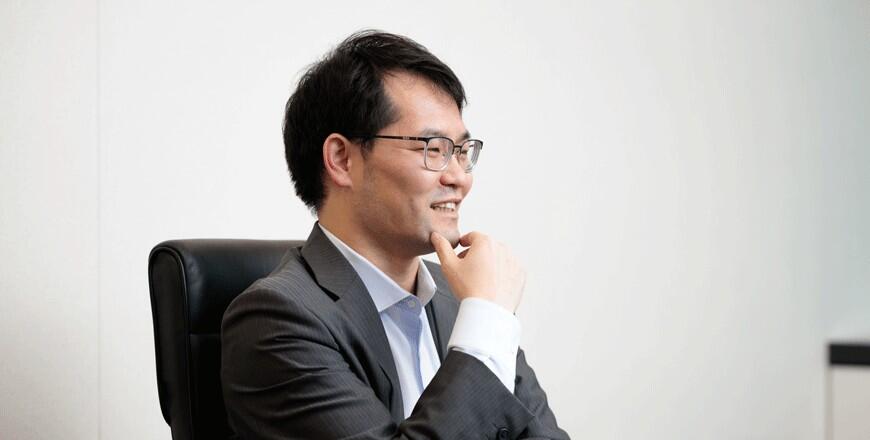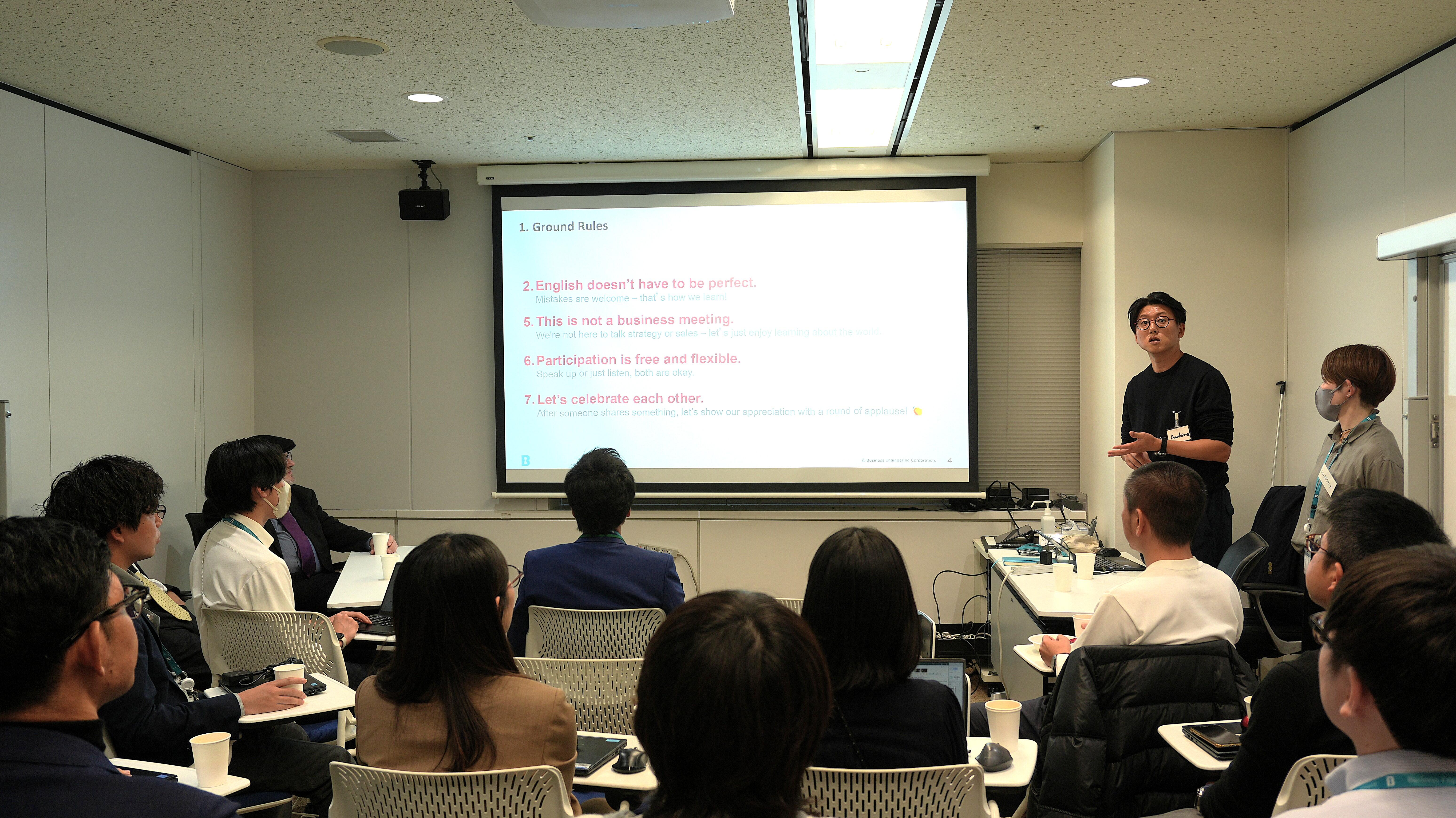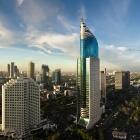Speaker: Business Engineering Corporation
Product Business Headquarters
Product Service Headquarters
System Integration Division 3
Project Manager/Implementation Consultant
Mao Changfeng
The importance of communication that is in tune with the local situation
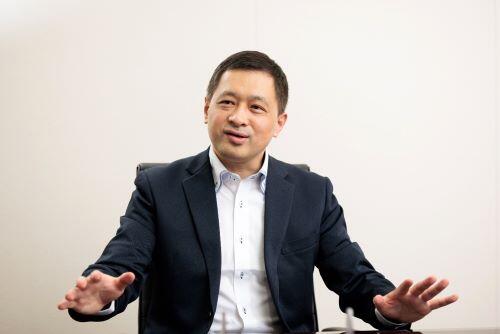
Many companies looking to expand overseas face the challenge of building an IT infrastructure that supports global management. Because business practices, accounting rules, tax systems, and so on differ from country to country and region to region, it is difficult to introduce and operate a unified system. Forcing a system on local staff solely for the convenience of the Japanese side is likely to invite resistance from local staff. It is important to always respect the other party's position and work together to resolve issues. In particular, when introducing a system, it is important to classify issues not only from a technical perspective but also from multiple perspectives, such as time frame, budget, resources, and ease of operation, and to make flexible adjustments while reaching a consensus on priorities and solutions.
It is important to do so.
In this environment, Mao Changfeng has thoroughly implemented "communication that is close to the local situation" and has led numerous global expansion projects.
What's important is communication based on the local perspective
Japanese companies' overseas expansion, which began with the export of products manufactured in Japan, is now at the stage of challenging the business model of local production and consumption, where products are manufactured overseas and sold overseas. In order to do so, many companies are facing various challenges due to the need to respond to a variety of business models. One of the biggest obstacles is building an IT infrastructure that supports global management. Systems are introduced to local subsidiaries established in each country and region, and management information such as business results and accounting is exchanged with the headquarters in an attempt to make quick decisions, but various "clashes" arise.
This is because each country and region has its own unique culture, and if business practices differ, accounting rules, tax systems, etc. It is common for package software designed to suit the local way of thinking and business processes, or systems developed from scratch, to be used in each country or region.
In such a situation, if you try to apply Japanese ways or systems commonly used in Japan as if they were "natural," you will only invite backlash locally. From the point of view of local staff, job hopping is natural, and Japanese systems that are not accepted by other companies are likely to be disliked, making it difficult to retain talented personnel. As a result, the ratio of Japanese expatriates cannot be reduced, and high costs of management mean that you cannot be competitive with local companies.
What must be done to prevent this from happening? "First of all, we need to get to know the other party and talk to them, put ourselves in their shoes and try to understand their way of thinking and feelings," says Mao Changfeng of the System Integration Division 3, Product Services Division, Product Business Division.
He embodies his policy of "communication that is close to the local situation" and is the person who is leading the global expansion of "mcframe GA".
Traveling around the world in search of a place to thrive
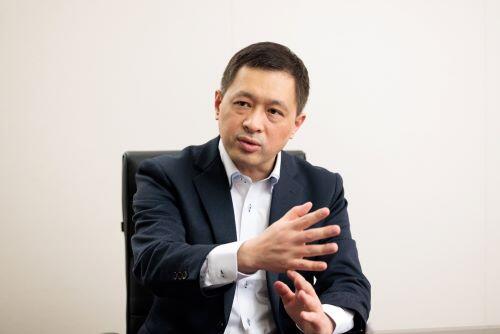
Born and raised in Shanghai, China, Kaya came to Japan in 2001. After that, he studied at a Japanese university (Faculty of Economics) for four years and continued his job hunting in Japan. It was during this time that he came across B-EN-G, which was actively recruiting international students.
"Influenced by my father, who was in the marine products trading business with Japanese companies, I myself have always had a strong global orientation, and I was looking for a company where I could travel around the world and play an active role while making use of my language skills (Chinese, English, Japanese). I was also very interested in IT,
"I wanted to work in a position that would bring about innovation in companies and society. With that in mind, I interviewed at B-EN-G, and in addition to being the perfect fit for my aspirations, I also felt that the atmosphere within the company was very friendly, so I decided to work here to advance my career," Kaya recalls.
Kaya joined B-EN-G as a new graduate and was transferred to his current department (formerly the ASIA Business Division) in his second year in 2008. There he began his career as a consultant and project manager in the implementation of mcframe GA.
The first project he was involved in was an implementation project for a trading company that had expanded into Hong Kong. "It was a relatively small-scale project, and because it was in Hong Kong, we also had the advantage of being able to communicate directly in Chinese and English. As we visited the site many times and held repeated discussions, we were able to help the local staff deepen their understanding of the system, and in the end, we received high praise from the local staff, who said, 'This will make our work much easier,' and we were able to successfully lead the project to success." (Kaya)
Leading a project spanning five locations in four Southeast Asian countries
Kaya's activities have since expanded beyond the Chinese region to include projects spanning multiple countries and locations, primarily in Southeast Asia.
One project that we worked on for a major facility construction company was to introduce mcframe GA to five locations in four countries, namely Singapore, Malaysia, Thailand, and Vietnam, to visualize the performance figures for each location and each construction project on a global scale.
The company handles more than 200 construction projects a year in Southeast Asian countries, across a wide range of fields. However, because each base introduced an accounting system that was individually optimized for the accounting rules and tax systems of each country, the account items and formats were also different, making it difficult to grasp the profitability of each construction project. The company was forced to carry out cumbersome tasks such as collecting the actual results of each base in Excel sheets at the Singapore base and then manually tallying them up. Therefore, the company aimed to solve this problem by unifying the accounting systems of each base into mcframe GA, which supports multiple languages.
However, as mentioned above, if things are unilaterally imposed from headquarters, it will only invite backlash from each branch.
"Of course, it is important to understand the client's business, but even before that, it is important to take into account the culture and way of thinking of the other country in their own language. This project also involved members of various nationalities and races, and we deepened mutual understanding by communicating primarily in English, but also in Chinese in some cases. Furthermore, rather than simply interpreting words, we tried to put ourselves in the client's shoes and empathize with their feelings," says Kaya.
As a result, a system was provided that enabled each site to easily process standard reports within the basic functions of mcframe GA with almost no customization or add-ons, which contributed to the project being completed in a short period of time.
Detailed support that takes into account the needs of Chinese bases
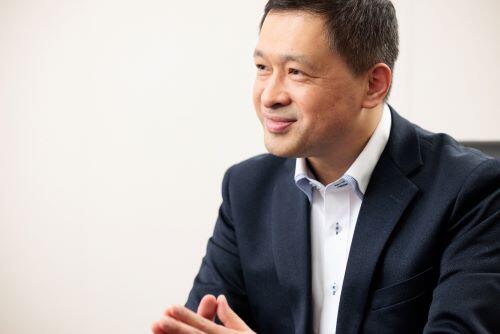
The project we undertook for a major manufacturer of plastic processing for automobiles was an even larger scale project to introduce mcframe GA to 10 bases in 5 countries overseas. The challenges were wide-ranging and extremely difficult, including accelerating accounting by reducing the number of man-hours at each base, strengthening global governance, strengthening risk management, strengthening credit management, building budget performance management functions for factories and by department, and building EDI linkage functions.
In this project too, Kaya took the lead in resolving the following issues by thoroughly implementing "communication that is close to the local community."
First, in terms of accelerating financial settlement, strengthening global governance, and strengthening risk management, data visualization from the head office was made possible by cloud-based mcframe GA. In addition, "we were able to establish the same system in different countries and regions, and it also contributed to smooth transfers of expatriates between bases." (Kaya)
Regarding credit management, by utilizing the standard functions of mcframe GA (warning alerts and limit settings), they were able to achieve significant efficiency improvements over the previous Excel management. "However, since it cannot handle the unique accounting systems in China, such as guaranteed bills and deductions for guaranteed claims, we decided to provide separate add-on forms after going live, taking into consideration local requests." (Kaya)
Regarding the budget performance management function, it became clear that the types of budgets themselves varied widely, including original budgets, revised budgets, expected budgets, and final budgets, and that each location had a strong preference for the report formats they had traditionally used. Therefore, it was decided to develop an add-on program to address this issue as well. As for the EDI linkage function, since there were many orders placed with trading companies and each location had different part number systems, an EDI add-on was developed while utilizing the linkage import function of mcframe GA. "By introducing this as the client's standard template to other global locations, it has contributed to reducing the amount of work required to enter order slips, preventing input errors, controlling inventory at the receiving location, and improving the accuracy of sales forecasts." (Kaya)
Smoothly carry out projects even remotely
Kaya also handled the implementation of mcframe GA at the Japanese headquarters and four bases in China for a major mail-order company whose main products are interior goods, furniture, and home appliances. The project aimed to strengthen control over local subsidiaries amid the rapid expansion of overseas business, as well as to accelerate the launch of new overseas bases.
Making the tight schedule a top priority, mcframe GA was built on the cloud, and detailed feature expansions and improvements were to be adjusted through consultation after the system went live. However, immediately after this kickoff, a state of emergency was declared due to the COVID-19 outbreak. Restrictions were imposed not only on international travel but also on domestic travel, and it became impossible to advance the project face-to-face as had been the case up until then.
Kaya was forced to introduce a remote system, but says, "Once we started, we discovered that it had many unexpected advantages." For example, because business trips were no longer necessary, it was easier to arrange meeting dates with clients, and using web conferencing and chat tools made it easier to understand the progress of work on the client's side, allowing projects to proceed smoothly. If meetings and training sessions are recorded, they can also be shared with members who were unable to attend on time. By maximizing the benefits of two-way communication using the cloud, Kaya was able to successfully complete the project on schedule.
Of course, the system also responded to functional expansions after the system went live without any problems. "The client's headquarters asked us if they could see the corresponding items when cash and deposit items change, so we decided to change the accounting entry method to a somewhat unusual operation where debit and credit are entered on a 1:1 basis. As this is a method of entering entries that is not very familiar in China, we communicated carefully and repeatedly to explain the purpose of the introduction, and by minimizing resistance from the local side, we were able to get the new operation on track," says Kaya.
Kaya's flexible response is highly appreciated by customers, with one comment saying, "Being in charge of the project meant that we could consult in Chinese about detailed specifications and operation methods, which was very helpful. We were unable to go to the site due to the COVID-19 pandemic, and were worried about training for the staff, but the work went more smoothly than we expected, even remotely." The system is merely a tool, and it is important to carry out projects while always keeping in mind what benefits it can bring to the customer and how it can contribute to the reform of the customer's business. Kaya will continue to work hard, not only in person but also remotely, with the belief that "communication that is close to the local situation" is the motto.
